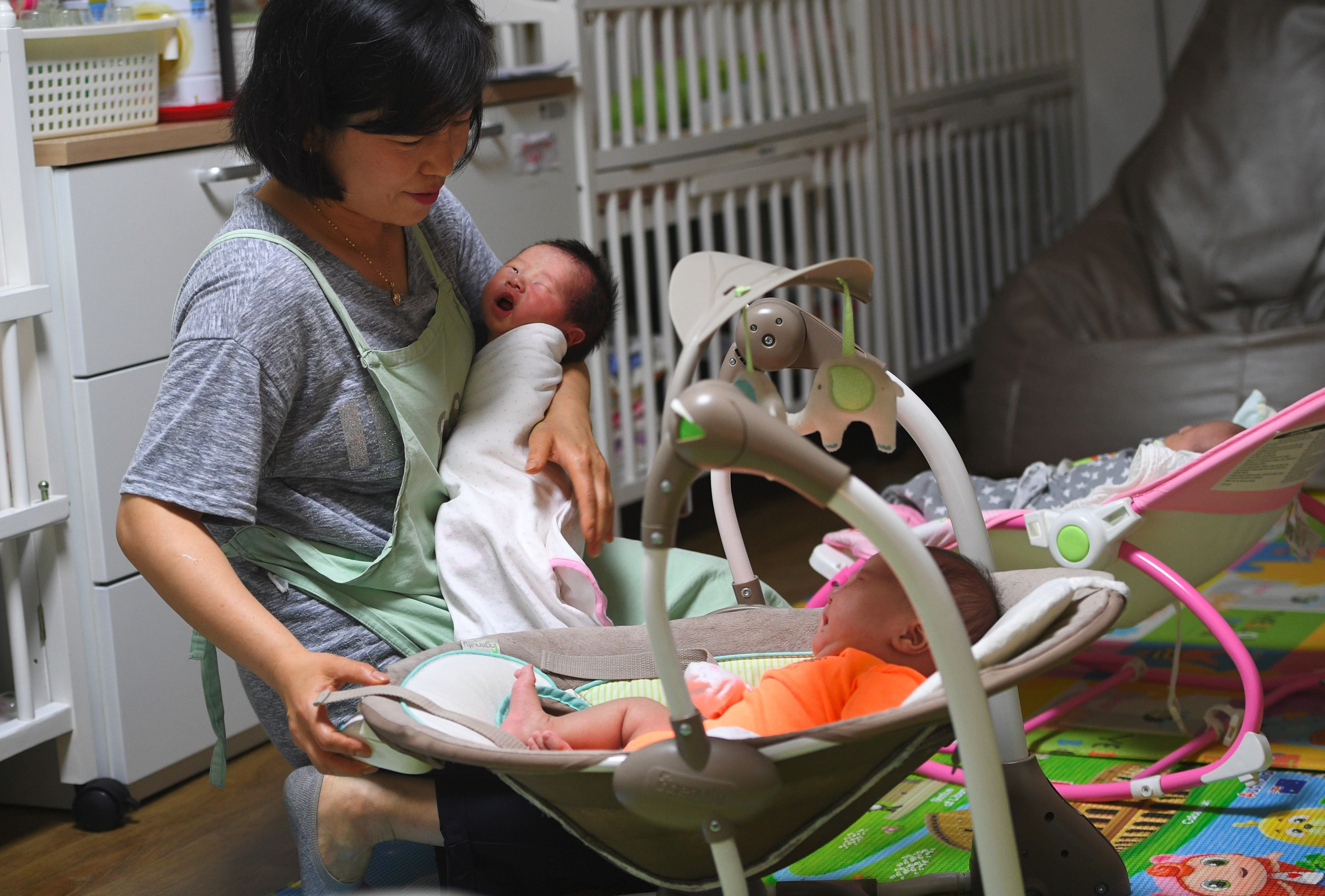The country with lowest fertility rate gives medals to two women who had 13 children each
East Asian country is setting up new ministry to address ’national emergency’ of plummeting birth rate
Your support helps us to tell the story
From reproductive rights to climate change to Big Tech, The Independent is on the ground when the story is developing. Whether it's investigating the financials of Elon Musk's pro-Trump PAC or producing our latest documentary, 'The A Word', which shines a light on the American women fighting for reproductive rights, we know how important it is to parse out the facts from the messaging.
At such a critical moment in US history, we need reporters on the ground. Your donation allows us to keep sending journalists to speak to both sides of the story.
The Independent is trusted by Americans across the entire political spectrum. And unlike many other quality news outlets, we choose not to lock Americans out of our reporting and analysis with paywalls. We believe quality journalism should be available to everyone, paid for by those who can afford it.
Your support makes all the difference.South Korea’s health and welfare ministry awarded two women with civilian service medals for giving birth to 13 children each, as the country grapples with a sharply plummeting birth rate.
Eom Gye-suk, 60, was presented with the Seongnyu Medal, the fifth grade of the Order of Civil Merit which is given to people who contribute to the country with outstanding accomplishments in politics, economics, society, education, or academics.
Lee Yeong-mi, 59, received the Civil Merit Medal, given to people who contribute through accomplishments and donations, those who risk their lives to save others, and those who devote their lives to public service.
Ms Eom had five sons and eight daughters between 1986 and 2007.
Ms Lee had her first child at 23 and the last at 44.
“After repeating pregnancy and childbirth for over 20 years, there were some difficulties, but thanks to my children who have grown up well, I think I have more happy moments than others,” Ms Eom said at the awards ceremony, held in the Glad Hotel in Seoul, on 10 October.
“Compared with the 1980s and 2000s when I gave birth and raised my children, there are many policies to support childbirth and childrearing. But when I hear from people around me there are still many shortcomings,” Ms Lee was quoted as saying by the Korea Herald.
“We desperately need a workplace culture where people can use childcare leave without worrying about what others think, and support for self-employed people who do not have childcare leave and cannot take time off from work.”

In May this year, president Yoon Suk-yeol announced that South Korea would be setting up a ministry to address the country’s plummeting birth rate, calling it a “national emergency”.
The East Asian country is battling a rapidly falling birth rate and has programmes to encourage people to have more children. The fertility rate declined to a historic low of 0.78 in 2022, the lowest globally and well below the replacement rate.
South Korea’s demographic crisis is blamed on a number of factors, not least with frustration with the rising cost of living, declining quality of life, as well as a patriarchal society.
The country’s women have cited the heavy emotional and physical burden of raising a child mostly by themselves, lost career opportunities, and the financial cost, setting the first such trend impacting a national demographic globally.
South Korean couples receive financial assistance from the government ranging from 35m won (£20,566) to 50m won (£29,380) through different incentive and support programmes from the time of their child’s birth until they reach the age of seven.
In September, a couple received 170m won (£95,757) in childbirth grants after giving birth to quintuplets.

Join our commenting forum
Join thought-provoking conversations, follow other Independent readers and see their replies
Comments